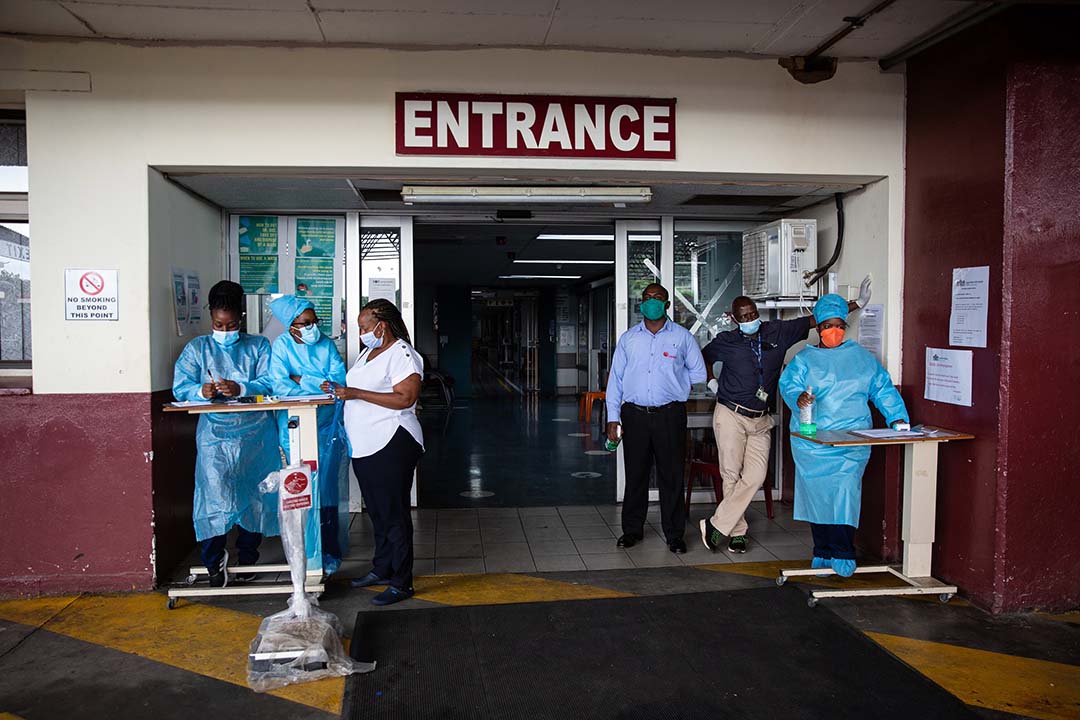South Africa Lifts Fifth Wave Restrictions, But Warns They Could Return
ADF STAFF
With South Africa’s fifth wave of COVID-19 infections now passed, Minister of Health Dr. Joe Phaahla has lifted the latest round of public health restrictions. But experts warn that those restrictions could return if infections climb again in a few months.
“We thank South Africans for resilience in internalizing various measures of prevention and mitigation against the virus, some of which will help us in dealing with some older respiratory diseases such as influenza and TB, but also future respiratory epidemics,” Phaahla said in a statement announcing the removal of restrictions like mandatory masking in public.
Phaahla said the change was possible because of a decline in daily cases, case positivity and reported deaths.
South Africa’s fifth wave was driven by the BA.4 and BA.5 strains of the omicron variant. At the peak of the wave in early June, health officials recorded just over 3,400 cases and about 240 deaths in a single week. That was one-third of the cases and one-fifth of the deaths at the peak of the fourth wave in late December.
Studies of blood samples from across South Africa taken at the end of the fourth wave in March showed that 98% of South Africans have been exposed to COVID-19.
According to health officials, some people in South Africa have called for pandemic restrictions to be reimposed only if a new wave sends large numbers of people to the hospital.
Phaahla said that would be a mistake.
“We completely disagree with armchair critics who argue we should drop all public health measures and just let the virus spread at will and only worry about whether hospitals are full,” the health minister said in his statement.
Epidemiologist Dr. Salim Abdool Karim, director of Caprisa, the Centre for the AIDS Programme of Research in South Africa, agreed with Phaahla’s assessment.
Karim was an early advisor for the government at the outbreak of the COVID-19 pandemic in early 2020.
While South Africa is enjoying a “holiday” between waves, another wave will come eventually, Karim told SABC News. South Africans need to be prepared to return to masking indoors, limiting the size of indoor gatherings, and other steps needed to prevent the spread of COVID-19, Karim said.
“This is not the end of COVID restrictions,” Karim said. “We’re now in a period where we can afford to do it, but we would very easily go into a period where we can’t afford to allow this. We have to be ready to deal with that.”
People who dismiss the risk of COVID-19 because they’ve already recovered from the virus are missing the actual threat, which is reinfection, Karim said.
Reinfection increases the odds that someone will develop the chronic condition known as long COVID, which currently affects up to 20% of people who have recovered from infections.
Long COVID contributes to a host of other illnesses, ranging from heart attack and stroke to neurological conditions including Parkinson’s disease.
Those conditions are most likely to affect people aged 50 and older — the same people who remain at elevated risk of infections regardless of their immunity status, according to health officials.
“It is really important that we try to prevent every possible infection,” Karim said.


Comments are closed.